- Write by:
-
Saturday, November 25, 2023 - 22:07:11
-
182 Visit
-
Print
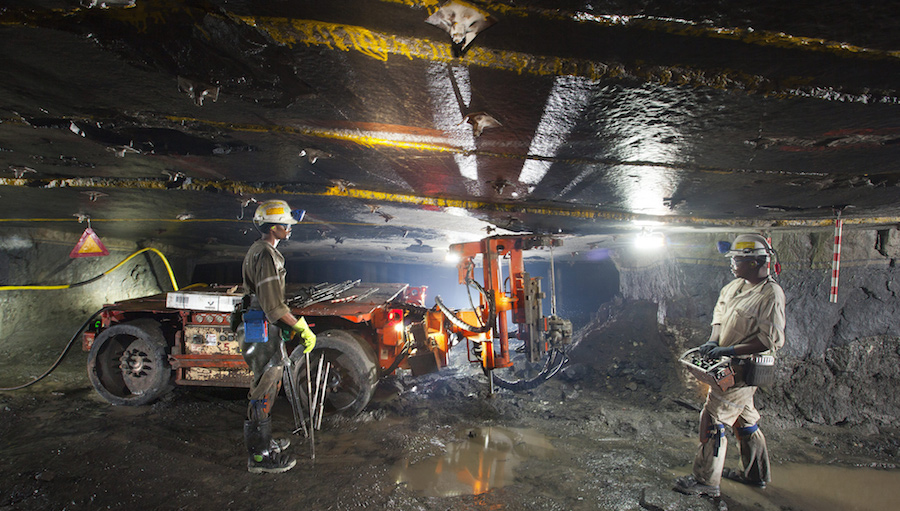
Mining News Pro - The company has held talks with the government over the potential reduction in its workforce, the people said, asking not to be identified because the matter hasn’t been made public. Senior government officials asked the company to consider delaying the cuts until after elections likely to take place around May, three of the people said.
SIGN UP FOR THE IRON ORE DIGEST
The Congress of South African Trade Unions said that Anglo has also spoken to one of its members, the National Union of Mineworkers, about the matter.
The job cuts would be another blow to the electoral prospects of President Cyril Ramaphosa and his ruling African National Congress. Anglo is already in the midst of plans to slash corporate and head office jobs globally, with many of those positions in South Africa. The company joined other mining behemoths in posting a steep drop in first-half profit as China’s economic slowdown damped earnings.
Anglo American Platinum Ltd. — about 79% owned by London-based Anglo — is contending with a 14% fall in the price of platinum this year and a 41% plunge in palladium, a valuable byproduct. Rival Sibanye Stillwater Ltd. said in October that it may fire more than 4,000 platinum workers.
Kumba Iron Ore Ltd., owner of South Africa’s biggest iron ore mine and a 70% subsidiary of Anglo, said third-quarter iron ore sales fell 12% from the year earlier, largely because of the poor performance of state ports and freight rail company, Transnet SOC Ltd. The company is almost out of storage space for the ore it has mined and can’t rail it, one of the people said.
“It is no secret that the current operating environment is very tough for both macro and South Africa-specific reasons and we are playing a major role in working across business and with government to help resolve some of those South Africa constraints,” Anglo said in a response to queries. “Beyond that, it would be inappropriate for us to comment on the details of our discussions.”
While a final decision on whether to fire workers and how many positions may be affected has not been taken, the job cuts may impact Anglo American Platinum first, the people familiar said. Those at Kumba may be deferred until later, they added.
The minerals department didn’t respond to a request for comment, while Gwede Mantashe, minerals and energy minister and chairman of the ANC, didn’t answer a call to his phone or respond to a text message.
PGM prices are falling because of global economic conditions, especially the weaker-than-expected recovery in China.
Kumba’s woes are directly related to the sub-standard performance of Transnet, whose inability to rail commodities to ports has also led to coal companies Seriti Resources Holdings Ltd. and Glencore Plc to start talks over job cuts. The plunge in rail performance has seen the amount of iron ore transported to ports fall to the lowest in a decade, while coal shipments by rail are at a 30-year low, according to a report prepared for Ramaphosa’s office.
In an Oct. 24 production report, Kumba said “ongoing rail and port challenges have increased our focus on cost optimization and initiatives to match production and optimize logistics capacity.” It said it had 9 million tons of iron ore in stock at the end of September, almost double the amount it had on site a year earlier.
The company has held talks with the government over the potential reduction in its workforce, the people said, asking not to be identified because the matter hasn’t been made public. Senior government officials asked the company to consider delaying the cuts until after elections likely to take place around May, three of the people said.
The Congress of South African Trade Unions said that Anglo has also spoken to one of its members, the National Union of Mineworkers, about the matter.
The job cuts would be another blow to the electoral prospects of President Cyril Ramaphosa and his ruling African National Congress. Anglo is already in the midst of plans to slash corporate and head office jobs globally, with many of those positions in South Africa. The company joined other mining behemoths in posting a steep drop in first-half profit as China’s economic slowdown damped earnings.
Anglo American Platinum Ltd. — about 79% owned by London-based Anglo — is contending with a 14% fall in the price of platinum this year and a 41% plunge in palladium, a valuable byproduct. Rival Sibanye Stillwater Ltd. said in October that it may fire more than 4,000 platinum workers.
Kumba Iron Ore Ltd., owner of South Africa’s biggest iron ore mine and a 70% subsidiary of Anglo, said third-quarter iron ore sales fell 12% from the year earlier, largely because of the poor performance of state ports and freight rail company, Transnet SOC Ltd. The company is almost out of storage space for the ore it has mined and can’t rail it, one of the people said.
“It is no secret that the current operating environment is very tough for both macro and South Africa-specific reasons and we are playing a major role in working across business and with government to help resolve some of those South Africa constraints,” Anglo said in a response to queries. “Beyond that, it would be inappropriate for us to comment on the details of our discussions.”
While a final decision on whether to fire workers and how many positions may be affected has not been taken, the job cuts may impact Anglo American Platinum first, the people familiar said. Those at Kumba may be deferred until later, they added.
The minerals department didn’t respond to a request for comment, while Gwede Mantashe, minerals and energy minister and chairman of the ANC, didn’t answer a call to his phone or respond to a text message.
PGM prices are falling because of global economic conditions, especially the weaker-than-expected recovery in China.
Kumba’s woes are directly related to the sub-standard performance of Transnet, whose inability to rail commodities to ports has also led to coal companies Seriti Resources Holdings Ltd. and Glencore Plc to start talks over job cuts. The plunge in rail performance has seen the amount of iron ore transported to ports fall to the lowest in a decade, while coal shipments by rail are at a 30-year low, according to a report prepared for Ramaphosa’s office.
In an Oct. 24 production report, Kumba said “ongoing rail and port challenges have increased our focus on cost optimization and initiatives to match production and optimize logistics capacity.” It said it had 9 million tons of iron ore in stock at the end of September, almost double the amount it had on site a year earlier.
Short Link:
https://www.miningnews.ir/En/News/627700
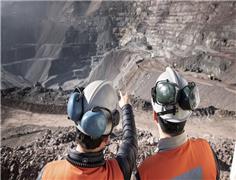
Anglo American Plc said it is has received an unsolicited non-binding combination proposal from BHP Group.
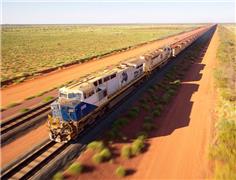
Australia’s Fortescue on Wednesday logged a larger-than-expected decline in third-quarter iron ore shipments, following ...
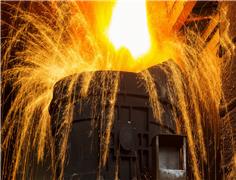
Iron ore futures prices ticked lower on Monday, weighed down by diminishing hopes of more stimulus in top consumer ...
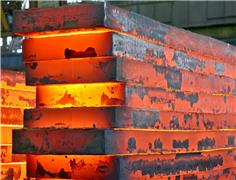
Iron ore futures prices drifted higher on Thursday as the latest soft data from top consumer China triggered renewed ...
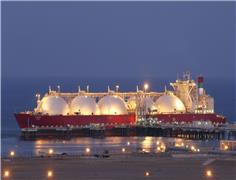
Vitol Group confirmed that it’s starting to rebuild a trading book for metals after a long stint out of the market, with ...
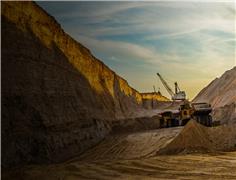
Australia’s Fortescue said on Monday it would form a joint venture with OCP Group to supply green hydrogen, ammonia and ...
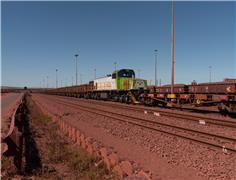
Iron ore reversed direction after dropping to its lowest level in 10 months as optimism that the country’s economic ...
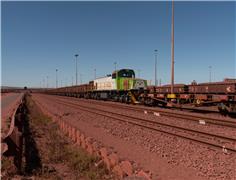
Iron ore reversed direction after dropping to its lowest level in 10 months as optimism that the country’s economic ...
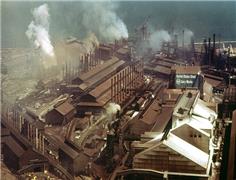
Nippon Steel intends to pursue its proposed acquisition of US Steel and wants its “deep roots” in the United States to ...
No comments have been posted yet ...